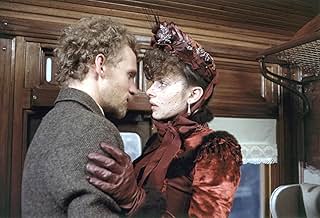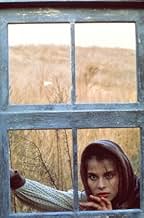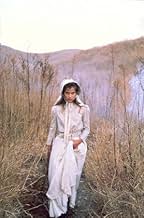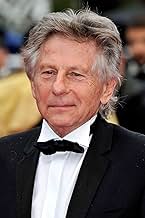Tess
- 1979
- Tous publics
- 2h 50min
NOTE IMDb
7,3/10
19 k
MA NOTE
Une jeune paysanne décidée devient l'objet de la convoitise de deux hommes.Une jeune paysanne décidée devient l'objet de la convoitise de deux hommes.Une jeune paysanne décidée devient l'objet de la convoitise de deux hommes.
- Réalisation
- Scénario
- Casting principal
- Récompensé par 3 Oscars
- 16 victoires et 17 nominations au total
Nastassja Kinski
- Tess
- (as Nastassia Kinski)
Avis à la une
SYNOPSIS A poor girl in late 1800s England is used and abused in her search for love, affection and devotion.
CONCEPT IN RELATION TO THE VIEWER True love is an allusive thing and the rules and morals of an upper class society makes some men into real jerks. Sometimes following your heart can be a difficult road with a lot of dead ends and pitfalls.
PROS AND CONS I watched this film back in college when it first came out. I was a fan of Roman Polanski's work and this was his first film after 'Chinatown', which is one of my all time favorites. I recall that this was a long (almost 3 hours) film that was very slow and beautifully shot. Since I was more interested in car chases and explosion in my youth, I didn't recall this as being a very good film.
Since age tempers a lot of our youthful interests, the second viewing of this film was a much different experience. This is a slow film but it has to be. Life was much methodical and personal in the rural countryside of Victorian England. The script and acting are very intimate and you really get to know the characters as the story unfolds on the screen. The subtle tone of this film is amazing and the level of detail actually makes you believe you are in 1890s England.
The two lead characters played by Nastassja Kinski (Tess) and Peter Firth (Angel) do an exceptional job. Kinski's character is extremely shy and withdrawn. Firth is also engaging in his subtle portrayal of a preachers son trying to find the meaning of life. It is obvious from watching the film that Polanski was infatuated with Nastassja Kinski. He lingers on her in many shots and for good reason. She portrays the perfect heroine, virginal, pure and very beautiful.
The cinematography in this film is even more beautiful the second time around. The surreal scene of a fox hunt emerging from the mist in front of Tess as she walks down a deserted country road is mesmerizing on several levels. The end scene at Stonehenge with the rising sun casting long shadows as the final credits roll is truly breathtaking. There are countless other scenes like this that give the film and almost dreamlike quality.
In the end the viewer feel sorry for Tess as she is led away. She is more a victim of circumstance and the callousness of others than of her own doing. But the world of rural Victorian England was not a nice place, especially if you were poor, naive and very beautiful.
CONCEPT IN RELATION TO THE VIEWER True love is an allusive thing and the rules and morals of an upper class society makes some men into real jerks. Sometimes following your heart can be a difficult road with a lot of dead ends and pitfalls.
PROS AND CONS I watched this film back in college when it first came out. I was a fan of Roman Polanski's work and this was his first film after 'Chinatown', which is one of my all time favorites. I recall that this was a long (almost 3 hours) film that was very slow and beautifully shot. Since I was more interested in car chases and explosion in my youth, I didn't recall this as being a very good film.
Since age tempers a lot of our youthful interests, the second viewing of this film was a much different experience. This is a slow film but it has to be. Life was much methodical and personal in the rural countryside of Victorian England. The script and acting are very intimate and you really get to know the characters as the story unfolds on the screen. The subtle tone of this film is amazing and the level of detail actually makes you believe you are in 1890s England.
The two lead characters played by Nastassja Kinski (Tess) and Peter Firth (Angel) do an exceptional job. Kinski's character is extremely shy and withdrawn. Firth is also engaging in his subtle portrayal of a preachers son trying to find the meaning of life. It is obvious from watching the film that Polanski was infatuated with Nastassja Kinski. He lingers on her in many shots and for good reason. She portrays the perfect heroine, virginal, pure and very beautiful.
The cinematography in this film is even more beautiful the second time around. The surreal scene of a fox hunt emerging from the mist in front of Tess as she walks down a deserted country road is mesmerizing on several levels. The end scene at Stonehenge with the rising sun casting long shadows as the final credits roll is truly breathtaking. There are countless other scenes like this that give the film and almost dreamlike quality.
In the end the viewer feel sorry for Tess as she is led away. She is more a victim of circumstance and the callousness of others than of her own doing. But the world of rural Victorian England was not a nice place, especially if you were poor, naive and very beautiful.
I don't know what's been keeping them but 'Tess' has been overdue for a DVD release for a very long time. At last it's here, and it looks gorgeous, although it hasn't been digitally cleaned up and there are a couple of scratches here and there. It's been worth the wait though, as this is possibly the most beautifully photographed film ever made.
Ever since the release of '2001: A Space Odyssey' I have been fascinated by the work of Stanley Kubrick and his cinematographer on that film, Geoffrey Unsworth. 'Tess' was Unsworth's last work; he died during the filming, and shared his Oscar for this with Ghislain Cloquet, who finished shooting, copying Unsworth's own style. The lighting is subtle and appears beautifully natural: just look at the first five minutes starting with village club dancers walking to the field, John Durbeyfield's fateful meeting with the parson, the arrival of Tess' future husband Angel Clare, with the late summer afternoon shading gradually into evening and darkness and all before we have even identified which girl is Tess. Oh, and that stunning moment when Tess finds her confessional letter to Angel has slipped under the carpet of his room unread, and her stunned realisation is underlined by the wheeling camera shot and the blinding flaring of the sun behind her head suddenly wiping all else off the screen for a moment. Wonderful.
Do yourself a favour and look up Geoffrey Unsworth on the internet movie database the number, quality and range of films he contributed to is astonishing. By all accounts he was a lovely man too, the featurettes underline the terrific camaraderie that existed on the shoot between all the cast and crew, and it is really moving to hear their tributes and memories of Unsworth, particularly Nastassia Kinski fighting back tears as she recalls his death.
In the film, of course, Kinski is absolutely wonderful, just perfect for the role of tragic victim Tess, the 'pure woman' of Hardy's subtitle. Despite comments to the contrary I find her accent quite a commendable attempt at Dorset, having lived and worked there myself, and my wife having been born there. Some of the other accents are generalised country yokel, but Kinski has learned a pretty authentic representation of Dorset's rolling rounded vowels.
I'm also a Hardy fan, and Tess is quite possibly my favourite novel. I remain astonished that Polanski was so successful in transferring it to the screen. The featurettes make it clear the main task of literary adaptation for the screen is cutting things out, yet when I first saw the film I couldn't think of a thing that was missing. That's impossible of course, but the choice of what to film and what to leave out is almost seamless. Perhaps the only serious omission is the passage in the book where Tess feels guilt for inadvertently causing the death of the family horse in a night-time collision with the post-cart, and it is to assuage this guilt that she agrees to visit 'cousin' Alec, which is of course her great undoing. Polanski tried to cut the film to meet the expectations of distributors (and Francis Ford Coppola!) but some idea of his reluctance comes from the disclosure that he took 3 months to cut 20 minutes. I'd love to see a director's cut with that footage restored.
Finally, the background material reveals the bone-headiness of some of those involved in film distribution. The co-producer shows the film to the buyers of the two main IK distributors, and (pre-Oscars) one of them says 'This film will only show in my cinemas over my dead body.' Doesn't that remind you of Decca turning down The Beatles?
Ever since the release of '2001: A Space Odyssey' I have been fascinated by the work of Stanley Kubrick and his cinematographer on that film, Geoffrey Unsworth. 'Tess' was Unsworth's last work; he died during the filming, and shared his Oscar for this with Ghislain Cloquet, who finished shooting, copying Unsworth's own style. The lighting is subtle and appears beautifully natural: just look at the first five minutes starting with village club dancers walking to the field, John Durbeyfield's fateful meeting with the parson, the arrival of Tess' future husband Angel Clare, with the late summer afternoon shading gradually into evening and darkness and all before we have even identified which girl is Tess. Oh, and that stunning moment when Tess finds her confessional letter to Angel has slipped under the carpet of his room unread, and her stunned realisation is underlined by the wheeling camera shot and the blinding flaring of the sun behind her head suddenly wiping all else off the screen for a moment. Wonderful.
Do yourself a favour and look up Geoffrey Unsworth on the internet movie database the number, quality and range of films he contributed to is astonishing. By all accounts he was a lovely man too, the featurettes underline the terrific camaraderie that existed on the shoot between all the cast and crew, and it is really moving to hear their tributes and memories of Unsworth, particularly Nastassia Kinski fighting back tears as she recalls his death.
In the film, of course, Kinski is absolutely wonderful, just perfect for the role of tragic victim Tess, the 'pure woman' of Hardy's subtitle. Despite comments to the contrary I find her accent quite a commendable attempt at Dorset, having lived and worked there myself, and my wife having been born there. Some of the other accents are generalised country yokel, but Kinski has learned a pretty authentic representation of Dorset's rolling rounded vowels.
I'm also a Hardy fan, and Tess is quite possibly my favourite novel. I remain astonished that Polanski was so successful in transferring it to the screen. The featurettes make it clear the main task of literary adaptation for the screen is cutting things out, yet when I first saw the film I couldn't think of a thing that was missing. That's impossible of course, but the choice of what to film and what to leave out is almost seamless. Perhaps the only serious omission is the passage in the book where Tess feels guilt for inadvertently causing the death of the family horse in a night-time collision with the post-cart, and it is to assuage this guilt that she agrees to visit 'cousin' Alec, which is of course her great undoing. Polanski tried to cut the film to meet the expectations of distributors (and Francis Ford Coppola!) but some idea of his reluctance comes from the disclosure that he took 3 months to cut 20 minutes. I'd love to see a director's cut with that footage restored.
Finally, the background material reveals the bone-headiness of some of those involved in film distribution. The co-producer shows the film to the buyers of the two main IK distributors, and (pre-Oscars) one of them says 'This film will only show in my cinemas over my dead body.' Doesn't that remind you of Decca turning down The Beatles?
Beautiful to look at, not just the scenery but the art direction as well but overlong and somewhat ponderous. Nastassja Kinski handles the complex lead role with surety and exudes a great deal of charisma and star quality, it's surprising that her career fizzled out so completely but as she matured those qualities in evidence here diminished. Director Polanski's silent tribute to his late wife Sharon Tate at the end of the opening credits with a simple "To Sharon" after his credit is quite moving. She had left the Hardy novel with a note that she thought he would make a fine film of it when she headed back to the states just before her death.
In this adaptation of the Hardy novel, a peasant girl who may be descended from a noble family encounters romance and tragedy in 19th century England. Meticulously directed by Polanski, this epic drama unfolds quite leisurely but does not drag. The English countryside is beautifully captured, with the cinematography adding a haunting quality to the barren landscape, an effect further enhanced by the evocative score. Perhaps she does not faithfully embody the strong-willed heroine of the novel, but Kinski (resembling a young Ingrid Bergman) looks exquisite and effectively conveys a sense of melancholy in a star-making performance.
Tess had a lot going for it, a wonderful book and a director that was responsible for masterpieces like Chinatown, Repulsion and Rosemary's Baby. Tess didn't quite live up to the promising potential it did have and I don't consider it one of Polanski's masterpieces. However it is a commendable film and adaptation(even if I do prefer the 2008 BBC series) and better on re-watch than when I saw it a couple of years back and didn't care at all for it. The film is overlong, and while the pace is purposeful considering the book's complexity there are times where it does get a bit too languid. On the other hand, visually it is stunning with evocative scenery and photography. The music is also resolutely haunting, the scripting thought-provoking and literate and the story having its necessary pathos as well as being devastating and powerful in equal measure. The denouncement with Stonehenge as the backdrop is just stunning. The characters are not as complex as in the book or the series but are still interesting and emphatic. Nastassja Kinski does have moments where she is a little flat, but on the whole it is a very moving performance. Peter Firth is suitably subtle as Angel Clare and Leigh Lawson's menacing Alec comes close to stealing the film. Polanski's direction is exemplary. All in all, has much to admire but falls flat of being a truly outstanding movie. 7/10 Bethany Cox
Le saviez-vous
- AnecdotesThe film's opening dedication at the start of the film states: "For Sharon". Roman Polanski dedicated this movie to his late wife, Sharon Tate, who was killed in 1969 by the Manson Clan. Before Tate's death, she had read the film's source novel by Thomas Hardy and was convinced that her husband would one day make a great film based on the novel, with the hope that she would star in it. Movie was released to the theaters exactly 10 years after her untimely death.
- GaffesAt the beginning of the final sequence, set at Stonehenge, someone's head can be seen at bottom-left.
- Versions alternativesThe film was first released to German cinemas uncut with a running time of 184 minutes. As the audience reaction was far from overwhelming the distributor decided to re-cut and re-release the film in a more "accessible" 134 minutes version. But at least one of the original prints had survived and was shown here at the local art house years later.
- ConnexionsFeatured in The 38th Annual Golden Globe Awards (1981)
Meilleurs choix
Connectez-vous pour évaluer et suivre la liste de favoris afin de recevoir des recommandations personnalisées
- How long is Tess?Alimenté par Alexa
Détails
- Date de sortie
- Pays d’origine
- Langue
- Aussi connu sous le nom de
- Cô Gái Đức Hạnh
- Lieux de tournage
- Sociétés de production
- Voir plus de crédits d'entreprise sur IMDbPro
Box-office
- Budget
- 12 000 000 $US (estimé)
- Montant brut aux États-Unis et au Canada
- 20 093 330 $US
- Montant brut mondial
- 20 101 247 $US
- Durée
- 2h 50min(170 min)
- Couleur
- Rapport de forme
- 2.35 : 1
Contribuer à cette page
Suggérer une modification ou ajouter du contenu manquant


































